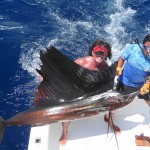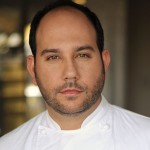It’s a tough job market out there, as you probably already know. Too many people looking and not enough positions to go around, meaning you have to bring your best game when an interview does come up. Everyone knows the obvious stuff – be confident, rested, well-groomed, alert, polite – but there’s more to it than just that. Think you’re a veteran of job interviews? Read on.
- Do your homework – Learn a little about the company you’re about to interview with. What kind of path are they on? What’s their history? How have the last few quarters been for them? Who are their competitors? What’s their mission statement? Think about what strengths there are in your resumé that might have given them the impetus to call you in for an interview, and possibly role-play an interview scenario with a friend beforehand.
- Watch the Details – Don’t overdress (a suit isn’t necessary for a non-office job), but be neat and well-groomed. Come in ten to fifteen minutes earlier than your interview time, and duck into a restroom quickly to check your appearance one last time. Depending on the position you’re applying for , you might want to bring charts, reports or other infographics on any projects you have worked on and you think may come up in the interview.
- Be aware of first impressions – Remember that first impressions go very far, and are hard to change. Be aware of things like body language – don’t fold your arms, cover your mouth, scratch your ear or nose, or look away; these things come across as evasive and/or defensive. Smile often and show a sense of humor, but don’t tell a joke; you want to be warm and relaxed, but not flippant or goofy. Do NOT talk about politics or current events, and if your interviewer brings up any such issues, don’t take the bait. Sit up straight and don’t slouch (although it’s okay to lean forward a little as you tune in on what the interviewer is saying). If you get the idea you’re talking too much, you probably are. Err on the side of your own better judgment.
- Stay Positive – Do not go in and complain about your last job or your last boss. It seems pretty obvious, but this is a pretty common mistake at interviews. Nobody wants to hear it (do you want to date someone who complains about their ex constantly?) and nobody wants to hire a disgruntled worker. On the other hand, don’t oversell yourself either, because potential employers can see right through that.
- Be Ready for the Usual Questions – They are an interviewer’s way of not only sizing you up for the job, but also to build a profile of you as a person. Remember to keep answers succinct and to the point; interviewers don’t want to hear your life story. What do you consider your strengths? What do you consider your weaknesses? Why do you want to work here? These are all routine questions at practically any interview. Think about them in advance and think about how you’re going to respond, but don’t come across as arrogant or boastful.
- Be Honest – Lying or fudging at a job interview might work, or it might not. But even if it does and you get the job, you can easily find yourself in over your head. With some skills and some jobs, you can “fake it ‘til you make it,” but others you most definitely cannot.
- Ask Questions – That’s where the homework you’ve done before the interview comes into play. Find out about the challenges of the job and the specifics of your responsibilities. Where can the job take you? What will you need to advance? What are your department’s goals? Asking the right questions shows that you’re engaged and committed and genuinely interested in the job.
With this information in hand, you’ll be prepared well the next time you’re called to come in for an interview.





 Donald Leon Farrow believes in giving back to the community. While his work as an architect keeps him busy, in his free time Donald Leon Farrow works as an animal rescue volunteer and animal welfare advocate.
Donald Leon Farrow believes in giving back to the community. While his work as an architect keeps him busy, in his free time Donald Leon Farrow works as an animal rescue volunteer and animal welfare advocate.